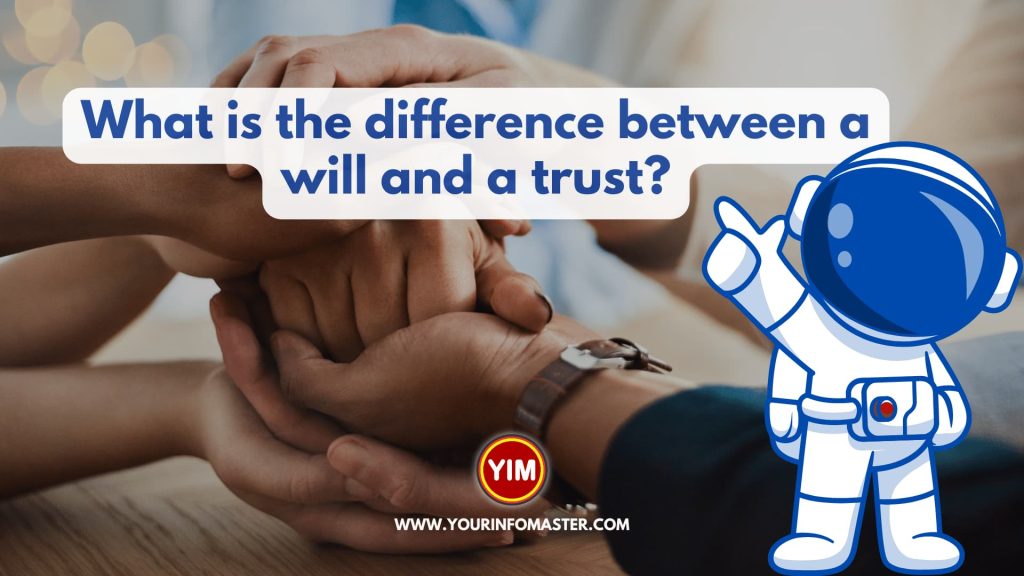I am going to explain the blog post “What is the difference between a will and a trust?“
I have noticed that people often use the terms “will” and “trust” interchangeably, but they are not the same thing. A will and a trust are both legal documents that help ensure your assets are distributed according to your wishes after you die, but they have different functions and benefits.
Check also: What’s the difference between a bison and a buffalo?
Check also: Water Intake Calculator
10 Differences between a will and a trust
So, what is the difference between a will and a trust? A will is a document that outlines how you want your assets to be distributed after you die. A trust is a legal arrangement where a trustee holds and manages assets on behalf of a beneficiary.
Check also: What is the difference between term and whole life insurance?
Here is a list of 10 differences between a will and a trust:
- Creation
- Function
- Property Ownership
- Probate
- Privacy
- Flexibility
- Cost
- Management of Assets
- Incapacity Planning
- Time of Distribution
Check also:
- Creation: A will is a legal document that is created during your lifetime, and it takes effect after your death. A trust is a legal arrangement that is created during your lifetime and can take effect immediately or upon your death.
- Function: A will outlines how you want your assets to be distributed after you die. A trust, on the other hand, can be used for asset management during your lifetime, as well as after your death.
- Property Ownership: With a will, you retain ownership of your assets until you die. With a trust, you transfer ownership of your assets to the trust during your lifetime.
- Probate: A will must go through probate, which is a legal process that ensures the will is valid and that your assets are distributed according to your wishes. A trust can avoid probate if it is properly funded and structured.
- Privacy: A will is a public document, which means anyone can access it. A trust is a private document that is not part of the public record.
- Flexibility: A trust can offer more flexibility than a will. For example, you can create different types of trusts to achieve specific goals, such as a special needs trust or a charitable trust.
- Cost: A will is generally less expensive to create than a trust. However, a trust can save money in the long run by avoiding probate and potential legal challenges.
- Management of Assets: With a will, your assets are distributed after your death. With a trust, a trustee can manage and distribute your assets during your lifetime and after your death.
- Incapacity Planning: A trust can include provisions for incapacity planning, which means that if you become incapacitated, a trustee can manage your assets on your behalf. A will does not offer this type of planning.
- Time of Distribution: A will distributes assets after your death. A trust can distribute assets immediately or after a specific event, such as the beneficiary reaching a certain age or graduating from college.
Conclusion
In conclusion, it’s important to understand the differences between a will and a trust to determine which one is right for you. While both documents have their own functions and benefits, a trust can offer more flexibility, privacy, and asset management options than a will. It’s essential to work with a qualified estate planning attorney to create a plan that meets your unique needs and goals.
See also: What is the difference between empathy and sympathy?
If you really enjoyed the article “What is the difference between a will and a trust?,” then I would be very grateful if you’d help it spread by emailing it to your friends or sharing it on Twitter, Instagram, or Facebook. Thank you!
Have you read “What is the difference between a will and a trust?“ Which of these blogs are you reading, and how is it similar to one of them?

